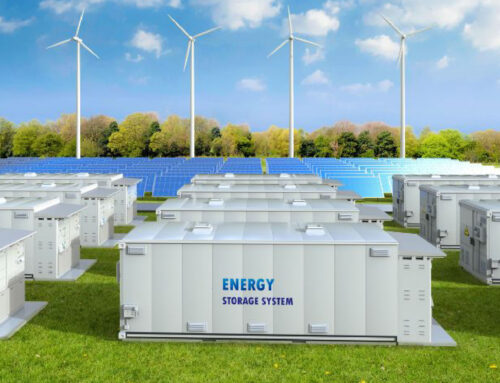
Reliance New Energy Solar, a wholly-owned subsidiary of Reliance Industries (RIL) headed by Mukesh Ambani, has purchased REC Solar Holdings (REC Group) from China National Bluestar (Group) Co. The purchase is worth $771 million, according to a statement from RIL.
This is the first big renewable energy deal that includes the acquisition of an equipment manufacturing site.
Renewable energy projects or firms with installed power production capacity were engaged in other recent agreements, such as that involving Adani and SB Energy Corp., or the ORIX-Greenko and GPSC-Avaada share purchases.
The merger of ReNew Power with RMG II, a blank-check business, was another important deal for the renewable energy sector, although it was just for the sake of ReNew’s Nasdaq listing and did not result in any additional capacity.
The RIL-REC agreement echoes Ambani’s remarks during his company’s 44th annual general meeting. “As a firm constantly focused on building companies of the future, RIL will give leadership on the combined strength of its bank sheet, talent, technology (tech), and proven project-execution capabilities,” he said of the new energy and new materials sector. RIL’s new energy business will be genuinely worldwide.”
While REC Group is headquartered in Norway, it is owned by China National Chemical Corporation (ChemChina), which has a 79.5 percent share in China National Bluestar (Group) Co.
Bluestar had acquired REC Solar in 2014 for $640 million.
“REC is headquartered in Norway and has its operational headquarters (HQs) in Singapore and regional hubs in North America, Europe, Australia, and the Asia Pacific. The 25-year-old company has three manufacturing facilities – two in Norway for making solar-grade raw polycrystalline silicon, commonly referred to as polysilicon, another in Singapore making photovoltaic (PV) cells and modules,” said the RIL statement.
REC Group was dealing with high expenses and pricing competition from other Chinese solar equipment producers in 2014. The decision to move operating headquarters and production facilities out of Norway was made to save money.
According to a Jefferies India study, REC is the only firm in the world that has commercialized technology that uses 75% less energy than Chinese competitors. “REC has commercialized the fluidized bed reactor (FBR) technology for manufacturing polysilicon. According to the research, the FBR process uses 75-80% less energy than the standard Siemens technique used by Chinese companies.
REC, according to RIL, has over 600 utility and design patents, 446 of which have been awarded and the rest are pending.
The validity of REC’s split cell and junction box tech patent was affirmed by China’s patent office in January. This in-house created technology, according to REC, is a fundamental component of the company’s sophisticated solar panels. In February 2020, REC Group filed a patent infringement action against Hanwha Q Cells, based in South Korea, to defend its intellectual property.
REC introduced the TwinPeak 4 Series, the fourth generation of its premium solar panels for residential and commercial rooftop installations, in May of this year.
REC presently can manufacture 1.8 gigawatts (GW) of solar panels per year. It has a global installed solar power output capacity of about 10 Gw.
“REC’s planned expansions, include 2-3-GW cells and module capacity in Singapore, a brand-new 2-GW cells and module facility in France, and another 1-GW module factory in the United States,” RIL said in a statement.
“In India, RIL plans to incorporate this industry-leading technology into its fully-integrated, metallic silicon-to-PV panel manufacturing gigafactory at Dhirubhai Ambani Green Energy Giga Complex, Jamnagar, initially with a capacity of 4-GW per annum and eventually growing to 10 GW per annum,” the company said.
“It (the acquisition) is in keeping with our strategy of investing in new and advanced innovation and operating capabilities targeted at reaching RIL’s objective of enabling 100 Gw of clean and green energy by the end of this decade,” RIL chairman said of the deal.
“With our other recent investments, RIL is now prepared to build a global-scale integrated PV gigafactory and establish India as a manufacturing powerhouse for the lowest-cost, highest-efficiency solar panels,” he said.
Click Here for more updates Ornatesolar.com








Leave A Comment